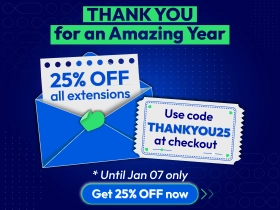Jumpseller Vs Shopify: The Difference You Must Know!
Summer Nguyen | 06-10-2024

In case you’re considering selling on the internet, you may be familiar with Jumpseller Vs Shopify. Both of them are well-liked choices for creating e-commerce websites. Here, we will analyze them to assist you in selecting the most suitable option.
Jumpseller Vs Shopify: Quick Assessment
Jumpseller and Shopify are two e-commerce platforms. They allow people and companies to establish and oversee Internet shops. Users can do this without an extensive understanding of technical concepts.

- Shopify: Shopify is a famous online store platform used worldwide. It has lots of tools for making and running online shops. These include website templates, a safe shopping cart, paying for things, stock tracking, marketing assistance, and data checking. Shopify is user-friendly. It is also very adaptable to the growth of your business. Plus, it is effective for both small and large businesses.
- Jumpseller: Jumpseller is a different e-commerce platform that provides comparable features to Shopify. It enables users to establish online shops and personalize their appearance and structure. Individuals can oversee products and stock levels, process payments, and monitor sales and performance. Jumpseller is especially favored by small and medium-sized businesses and startups. It provides affordable prices and a variety of customizable templates.
Now, let’s take a look at a comparison table between Jumpseller vs Shopify. The table is based on 7 specified factors:
|
Factors |
Jumpseller |
Shopify |
| Ease of Use | Simple interface, easy for beginners | Intuitive interface, user-friendly |
| Pricing | Affordable plans, no transaction fees | Various plans, transaction fees may apply |
| Features | Basic features, multilingual support | Extensive features, robust app ecosystem |
| Customer Support | Limited support, business hours | 24/7 support via chat, email, and phone |
| Marketing and Sales | Basic marketing tools, social media integration | Comprehensive marketing tools, extensive app ecosystem |
| Mobile Commerce | Responsive design, mobile-friendly | Mobile-responsive themes, mobile app available |
| Security Features | Secure platform, SSL certification | SSL encryption, fraud analysis |
Exclusive Offer: Get Shopify 93 days for just $1/Month + The Online Store Starter Kit
Start your 3-day free trial, and enjoy your first 3 months of Shopify for 1$ per month, plus the premium package designed especially for new Shopify merchants!
The Difference Between Jumpseller Vs Shopify
After doing a brief comparison, we will delve deeper to understand these 2 platforms better:
Ease of Use
- Shopify: Shopify has a website builder and a system for managing content. This makes it easy to change and manage the online store. Adding products is simple too. Hence, owners can update their inventory easily. One cool thing about Shopify is its order management system. It connects with popular order fulfillment solutions, making it easy to manage orders. This helps stores work better and keeps customers happy. Shopify also assists in optimizing SEO and ensuring the store functions smoothly on mobile devices. These characteristics make Shopify an excellent option. It is for companies looking to enhance online visibility and optimize mobile compatibility.
- Jumpseller: Jumpseller is easy to use for managing online stores. It has a simple dashboard where owners can control products, shipping, and site design. You can also add new languages, translate product pages, and customize options for different countries.
=> Verdict: Shopify is really easy to use. Adding products is simple, and managing orders is made easy with the automated dashboard. Shopify also helps with SEO and making the store work well on mobile devices.
Pricing

- Shopify: Shopify provides subscription options that vary in price from $5 to $2000 per month. The cost of Shopify POS Pro ranges from $0 to $89 per site. You can bypass the transaction fees with Shopify Payments. It charges 2.4% to 2.9%. There is also an additional 30 cents per transaction. You may have to buy apps, themes, or other additional features. This is contingent on what you like.
- Jumpseller: Jumpseller provides subscription options. These plans range in price from $11 monthly to $250 monthly. An important benefit of Jumpseller is that it does not impose transaction fees. Jumpseller doesn’t charge extra costs for add-ons, apps, or payment gateways.
=> Verdict: Both platforms have their strengths. Shopify is great for bigger businesses that can handle transaction fees. Jumpseller is perfect for smaller businesses or startups.
Features
- Shopify: Shopify provides many resources for creating e-commerce websites. Customers can personalize their online shops by selecting from various templates and themes. It is effective for companies of all sizes. There are many extra features accessible via third-party applications. Shopify offers around-the-clock customer support for help with any issues.
- Jumseller: Jumpseller simplifies the process of creating and overseeing e-commerce websites. The dashboard makes it simple for users to manage products, shipping, and design. It is beneficial for companies that wish to expand their sales worldwide. This is due to its ability to accommodate various languages. Furthermore, there are no charges for transactions. This is excellent for small businesses with limited funds.
=> Verdict: Shopify typically provides more sophisticated and powerful e-commerce functionalities. This is particularly for bigger vendors.
Customer Support
- Shopify: Shopify offers 24/7 assistance. It is available via email, live chat, and phone. They provide a thorough help resource that consists of articles, videos, and guides. Shopify representatives are recognized for offering fast and well-informed assistance.
- Jumpseller: Jumpseller does not have phone support or 24/7 live chat available. They provide email support and a help center.
=> Verdict: Shopify offers excellent customer service. It provides extra 24/7 support channels. It also garners higher ratings for the quality of customer support.
Marketing and Sales
- Shopify: Shopify provides a complete set of marketing tools. They assist companies in improving their visibility on the internet and increasing revenue. It offers SEO features already integrated and meta tags that can be personalized. It additionally offers the option to develop and oversee marketing campaigns on the platform itself. Furthermore, Shopify offers a diverse selection of marketing apps and integrations. They are used for email marketing, social media advertising, retargeting, and other purposes. Businesses can use advanced marketing analytics and insights through Shopify. They can check their progress and improve their marketing tactics.
- Jumpseller: Jumpseller offers fundamental marketing functionalities. These encompass the feature to include meta tags and descriptions on product pages. It also comes along with tools for SEO optimization. Jumpseller enables connecting with well-known social media sites for endorsing products. It does provide the benefit of having multilingual support. This could help appeal to global markets and expand the reach of the audience.
=> Verdict: Shopify provides many built-in tools for marketing and sales channels. Jumpseller depends heavily on integrations with third-party providers.
Read more: Shopify SEO Tutorial 2023: A-Z Guide to Rank #1
Mobile Commerce
- Shopify: Shopify holds a slight advantage in terms of mobile applications. Shopify provides a no-cost mobile application named Shopify POS. This application enables selling without an internet connection, processing payments, and synchronizing information. Additionally, there exists a Shopify AR application. It allows for augmented reality demonstrations of products.
- Jumpseller: At the moment, Jumpseller does not provide its mobile applications. Yet, Jumpseller still allows for good mobile optimization and integrations.
=> Verdict: Shopify offers a greater range of mobile commerce features as standard. This includes specialized eCommerce mobile apps at no extra cost.
Security Features Offered

- Shopify: Shopify utilizes SSL encryption and offers tools for analyzing fraud. These tools assist merchants in recognizing and stopping fraudulent orders. Shopify also provides backups and web application firewalls as extra protective measures.
- Jumpseller: Likewise, Jumpseller employs SSL certificates and utilizes a security system. This system stops unapproved access and checks for weaknesses. It also adheres to security regulations such as PCI DSS.
=> Both platforms provide strong capabilities that give merchants and customers reassurance. Shopify might have a small advantage due to extra safeguards.
Jumpseller Vs Shopify: Which To Choose For Your Project?
Before deciding which is the more suitable option for your project, it is a must to analyse the pros and cons of each:
|
Factors |
Jumpseller |
Shopify |
| Pros |
|
|
| Cons |
|
|
Now is the main question. Which platform to choose for your project? Here we have some tips for you:
Shopify is perfect for:
- Small to medium-sized businesses seeking a comprehensive e-commerce solution.
- Businesses aim to establish an online presence.
- Companies want to increase their scalability and expand their growth.
- Traders who focus on a diverse selection of app integrations and extensions.
- People who value a user-friendly interface and simplicity in operation.
- Companies requiring strong marketing and SEO capabilities.
- Those seeking round-the-clock customer help and comprehensive documentation.
- Retailers who aim to improve their sales reach. They want to sell on different platforms and connect with different payment processors.
If you’re planning to switch from another platform to Shopify, our Shopify migration agency can help ensure a seamless and secure transition.
Jumpseller is perfect for:
- Small and medium-sized enterprises find their specific requirements for online commerce.
- Entrepreneurs and startups want a simple and affordable alternative.
- Businesses that concentrate on specific market segments or industries.
- Users who like a simplified platform without excessive complexity.
- Companies seeking a solution that does not involve any transaction fees.
- Individuals need a platform that is both adaptable and able to be personalized.
Conclusion
In conclusion, picking between Jumpseller and Shopify depends on what your business needs. Look at what matters most for your business, and you’ll make the right choice between Jumpseller and Shopify.







![Top 20+ Must-have Shopify Apps for 2025 [Free & Paid] - Mageplaza](https://cdn2.mageplaza.com/media/blog/must-have-shopify-apps/top-must-have-shopify-apps.png)
![[2025 Updates] Top 10+ Upsell Apps for Shopify - Mageplaza](https://cdn2.mageplaza.com/media/blog/best-upsell-shopify-app/cover.png)